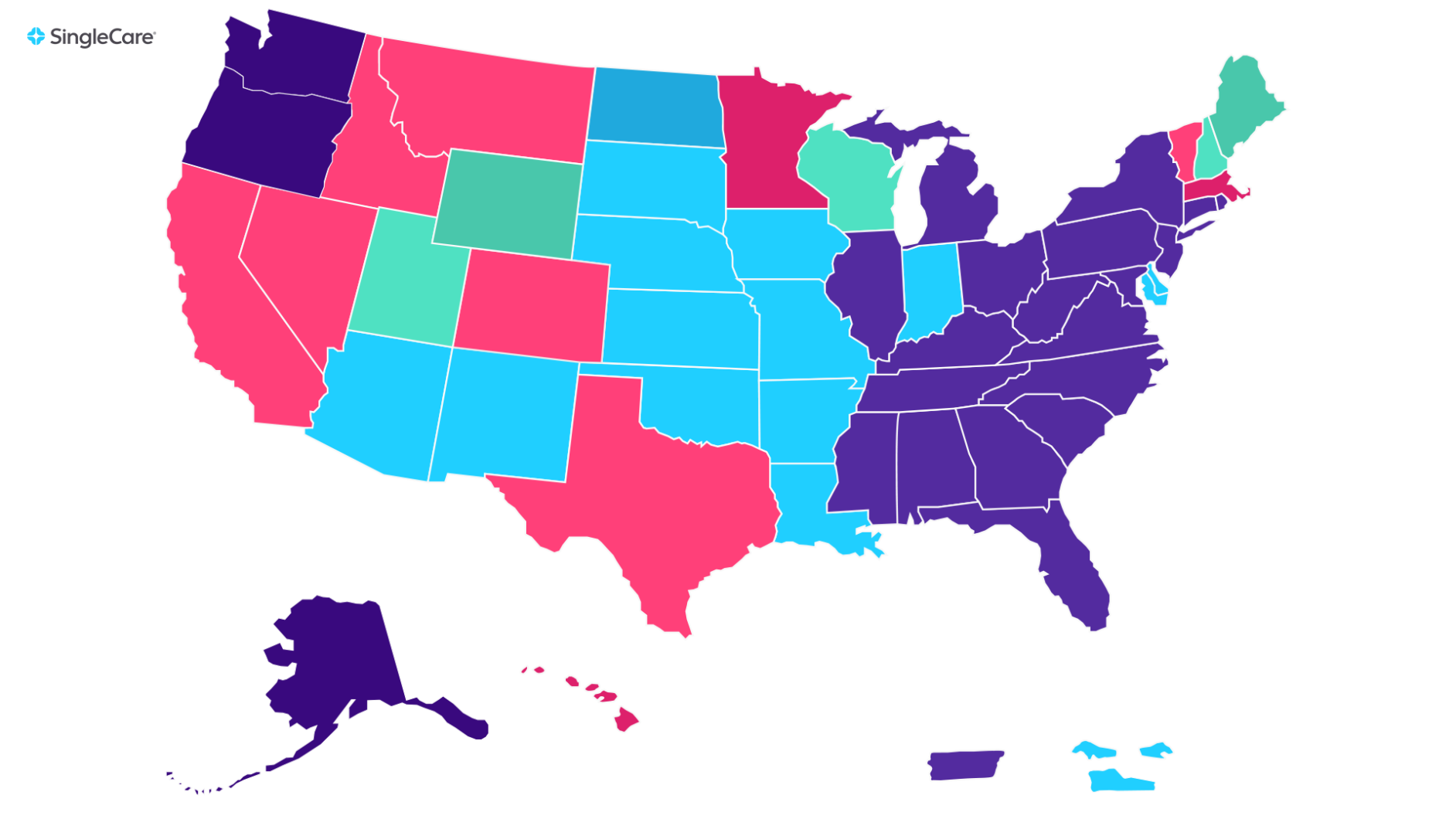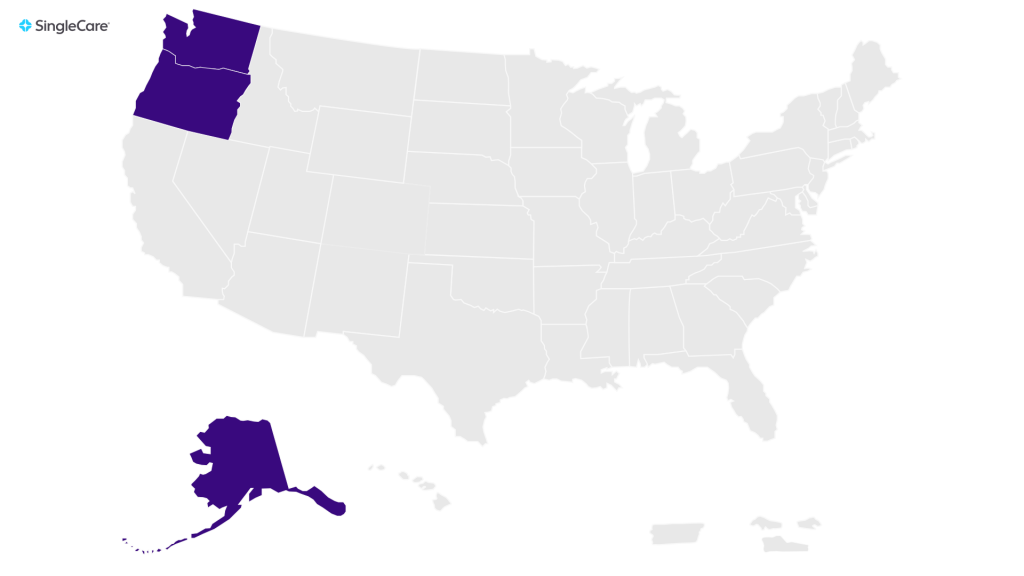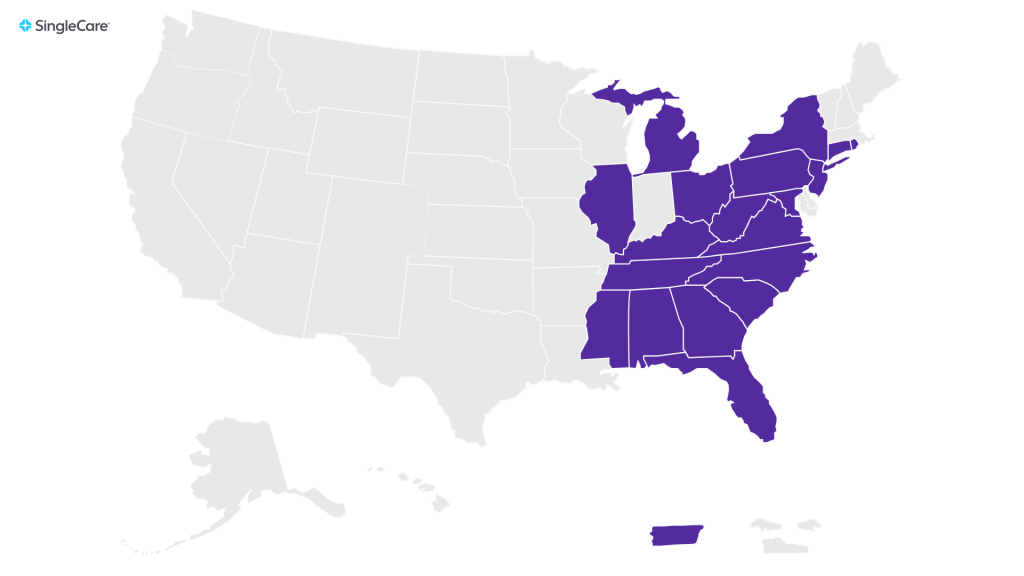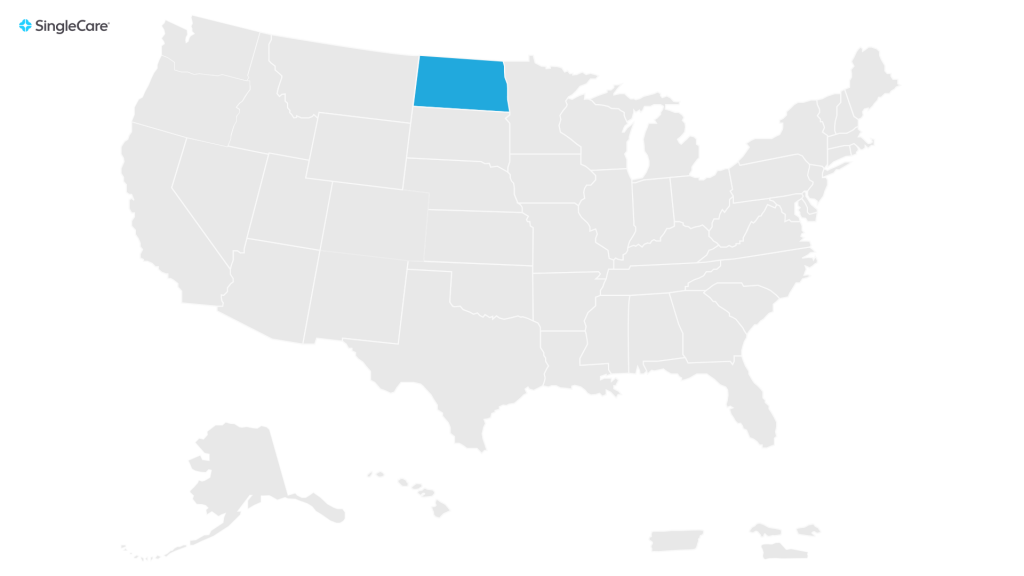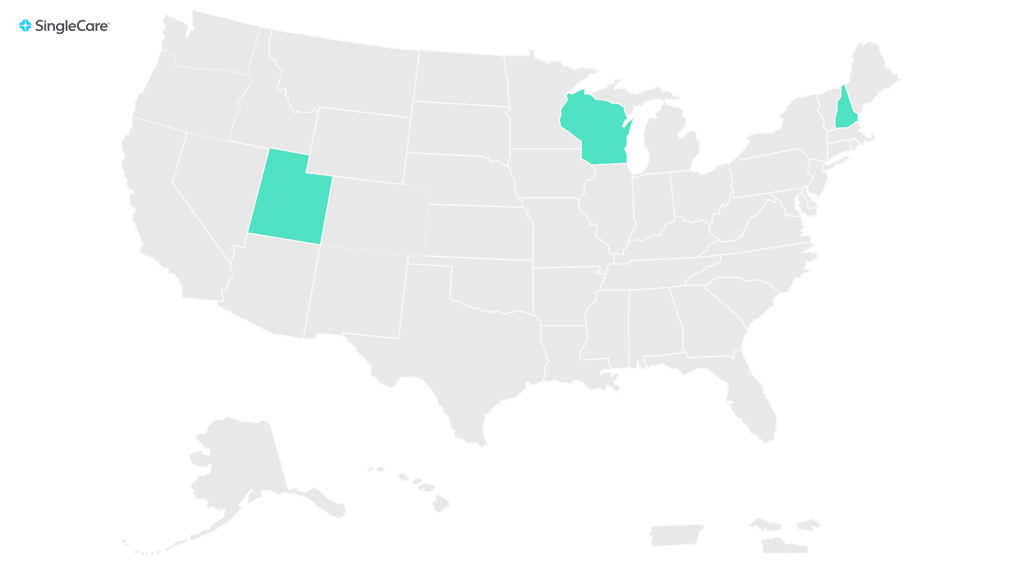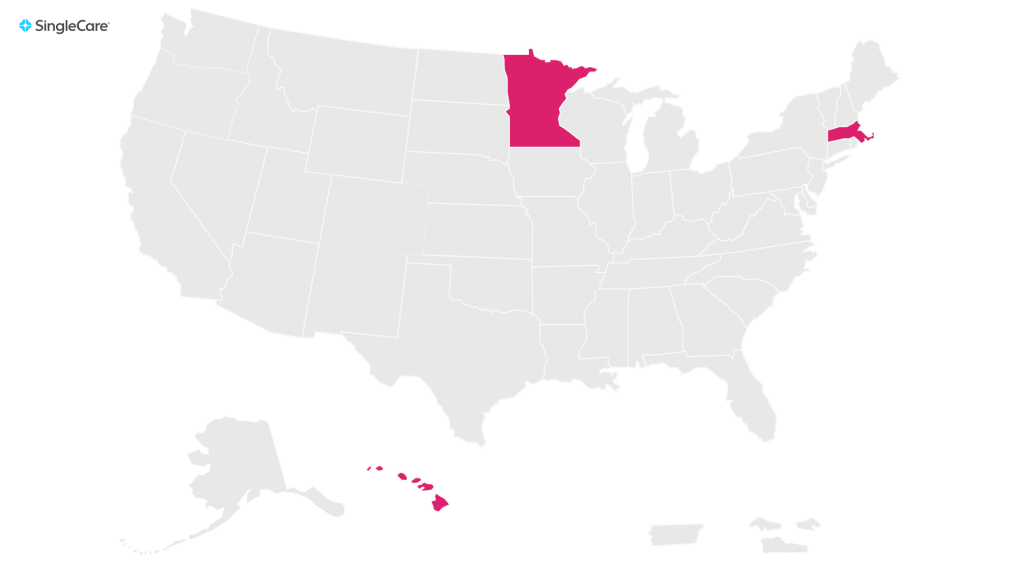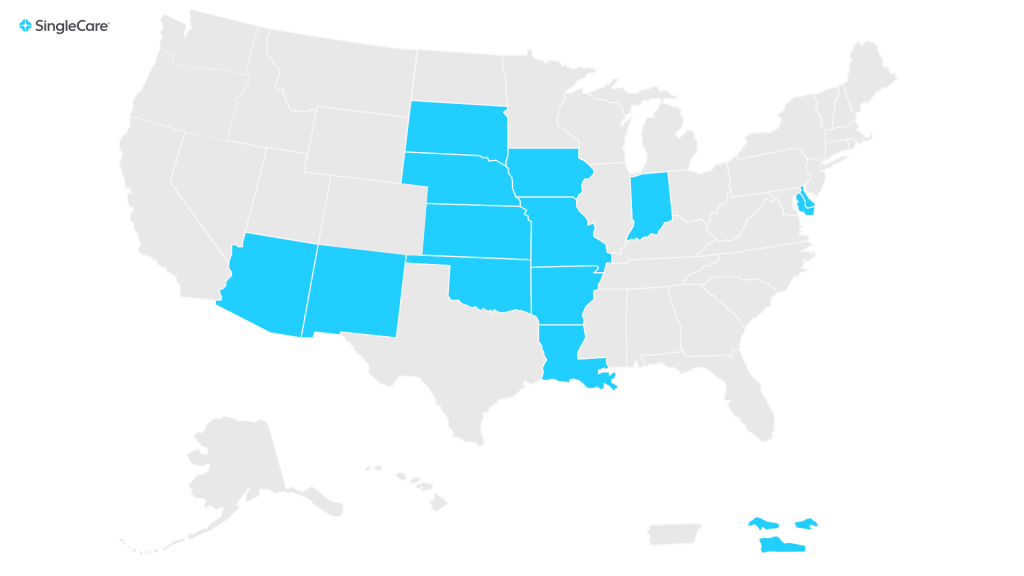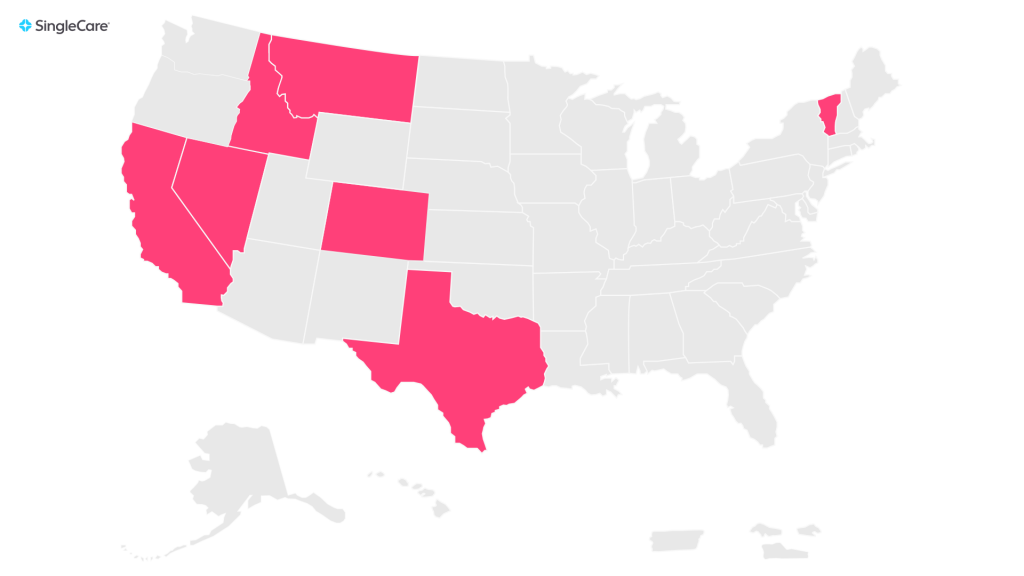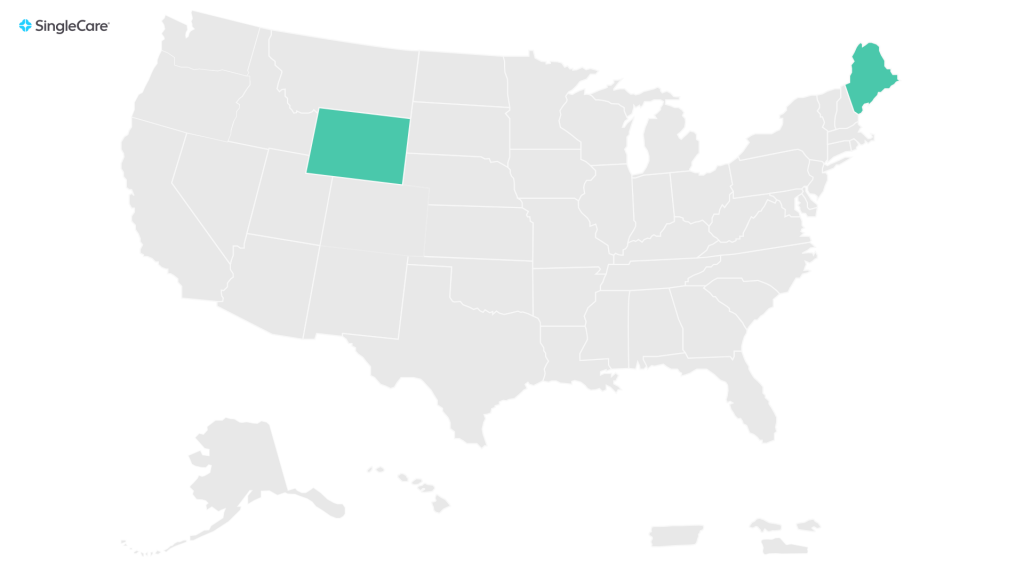Key takeaways
Nearly 4.25 billion prescriptions are estimated to be filled in 2019, with the average American spending $1,200 annually on prescription drugs.
Prescription trends vary by state, with drugs like Proair and Ventolin being popular in states like Alaska, Oregon, and Washington due to environmental factors and lifestyle habits such as smoking.
Vitamin D prescriptions are widespread across many states, although current medical guidelines no longer recommend routine screening for vitamin D deficiency.
Prescription patterns for drugs treating conditions like ADHD, erectile dysfunction, hypertension, bacterial infections, and diabetes highlight regional health concerns and possibly marketing influences.
Made a trip to your local pharmacy lately? You’re not alone. It’s estimated that nearly 4.25 billion prescriptions will be filled in just 2019. And that comes at a big cost. The average American pays $1,200 a year on prescription drugs.
SingleCare aims to help people save on their medications with our pharmacy discount card. Since 2014, millions of users have saved millions of dollars on prescription drugs. In fact, tens of thousands of scripts are filled with SingleCare every day. In all those purchases, we started to notice a few trends.
When you leave your doctor’s office with a prescription, you probably don’t spend a lot of time thinking about how many other people in your state are filling that same one. But some drugs are prescribed more commonly in certain states than in others.
We looked at the popular prescription medications being filled most often by our users in all 50 states in addition to Washington, D.C., Virgin Islands, and Puerto Rico. Here, we talk to experts about what these medications do, which conditions they treat, and why they might be prescribed so frequently in certain areas.
Which drug is filled most commonly in your state among SingleCare users? Read on to find out!
Proair and Ventolin
(Alaska, Oregon, and Washington)
You might have heard of Proair or Ventolin if you are asthmatic—or know someone who is. They’re both brand name bronchodilators, a.k.a. short-acting albuterol inhalers that relax the muscles of the lungs. They can relieve symptoms of asthma and chronic obstructive pulmonary disease (COPD).
These types of drugs are used as rescue inhalers once a person has already begun wheezing, coughing, or having shortness of breath, explains Jennifer Trevor, M.D., assistant professor of Pulmonary, Allergy, and Critical Care Medicine at the University of Alabama at Birmingham.
She adds that environmental factors like extreme heat or cold, prolonged humidity, and high altitudes can be a trigger for some individuals with airway diseases, which might explain why these medications are prescribed frequently in Alaska, Oregon, and Washington, where those climates prevail.
Additionally, Trevor says the smoking rate of a state can play a role since smoking increases the rate of COPD. Alaska reports some of the highest cigarette use in the U.S., according to a 2017 CDC report. Occupational exposures, proximity to major roadways or industrialized areas, and insurance coverage likely all factor into high rates of rescue inhaler prescriptions as well.
Get your SingleCare coupon for ProAir and Ventolin here.
Prescription vitamin D capsules in 50,000IU
(Alabama, Connecticut, Washington, D.C., Florida, Georgia, Illinois, Kentucky, Maryland, Minnesota, North Carolina, New Jersey, New York, Ohio, Pennsylvania, Puerto Rico, Rhode Island, South Carolina, Tennessee, Virginia, and West Virginia)
We probably don’t need to explain what vitamin D is to you. But just in case: it’s a vitamin you get from the sun and in foods such as milk and fish. A diet rich in vitamin D will help your body use calcium to facilitate strong bones. But if you’re not getting enough vitamin D, the supplement is available over the counter at most drug stores … so why is it the most commonly filled prescription drug on this list?
The answer might be in a somewhat out-of-date practice that hasn’t quite caught up to modern medicine, says Joshua Septimus, M.D., an internist at Houston Methodist Hospital.
“There was a push about 10 years ago to screen and treat for vitamin D deficiency in patients,” Septimus explains. “But over those same 10 years, studies have shown no benefit to supplementation—now every major organization that looks at the hard science is recommending against routine screening for vitamin D deficiency.”
As an example, the U.S. Preventive Services Task Force, says the evidence for screening for vitamin D is insufficient and lacks consensus, but despite their recommendations, doctors are still frequently prescribing it. This may be a continuing response to the serious medical problems that can result from deficiency.
“Not having enough vitamin D can cause conditions like rickets and osteoporosis,” says Laura Balsamini, Pharm.D., national vice president of pharmacy services at Summit Medical Group in New Jersey. “These conditions are especially dangerous for children, who are constantly growing and [need nutrients that aid healthy bone development].”
Dr. Septimus adds that other groups at risk for conditions related to vitamin D deficiency include Africans Americans, people who live in northern latitudes with longer winters, and populations with poorer diets heavy in fast foods and processed foods.
As far as why doctors write prescriptions for vitamin D (versus simply telling their patients to buy it OTC), it primarily comes down to convenience. “When you look at how much vitamin D is needed, a prescription will have 50,000 units per capsule—not 2,000 like the OTC supplements,” Dr. Balsamini explains.
If you’re interested to see that Vitamin D as the most popular medication filled in sunny locations like Florida and Puerto Rico, it could be because of prevention. In these southern states, people are more concerned about preventing skin cancer and are spending less time outdoors. When they are outdoors they are covered up and applying sunscreen, which prevents Vitamin D absorption from the sun.
Get your SingleCare coupon for prescription vitamin D here.
Freestyle Kit Sensor
(North Dakota)
Not exactly a “drug,” Freestyle is an insulin home monitoring kit for patients with diabetes—however, you still need a prescription for it. Even though diabetes is prevalent across the U.S., only North Dakota ranks at the top for Freestyle prescriptions. Is this a random occurrence, or one that points to something state-specific?
“Diabetes rates are very high in people who are of Native American descent,” says Dr. Septimus. According to the American Diabetes Association, American Indians and Alaska Natives have the highest rate of diabetes among all U.S. racial and ethnic groups—and they also comprise North Dakota’s largest minority group, per the North Dakota Census Office.
But there also could be an entirely different reason why Freestyle is prescribed so often in North Dakota, and it’s as simple as advertising. “Freestyle trending in a state [could mean] the company has done a good job marketing its product to that state,” Dr. Septimus says.
Get your SingleCare coupon for a Freestyle kit sensor here.
Amphetamine/dextroamphetamine tablets in 20mg
(New Hampshire, Utah, and Wisconsin)
Amphetamine/dextroamphetamine is a stimulant usually sold as Adderall, and according to Dr. Balsamini, it’s used for the treatment of Attention Deficit-Hyperactivity Disorder (ADHD) and narcolepsy. The drug sends signals to the brain that work for both conditions, increasing alertness and wakefulness for patients with narcolepsy and improving executive functioning for patients with ADHD.
There’s widespread usage across the country of medications for the treatment of ADHD (similar prescriptions include Ritalin and Vyvanse), but as for why amphetamine/dextroamphetamine is being prescribed so often in Utah and Wisconsin, it’s a bit of a mystery.
“I really can’t draw any conclusions about why it’s the top-filled drug in those states, other than to say that the patient population there is being diagnosed more than in other states,” says Dr. Septimus. “We usually see high use in wealthier areas because you need a lot of resources to get to the doctor and receive an ADHD diagnosis.”
Get your SingleCare coupon for amphetamine/dextroamphetamine here.
Sildenafil tab in 100mg
(Hawaii, Massachusetts, and Minnesota)
If you think you’ve never heard of sildenafil, you’re wrong…you probably just know it by its brand name, Viagra. Medications for the treatment of erectile dysfunction have become increasingly popular prescriptions in the past few years, and that’s partly due to lowered costs.
Viagra saw a serious price reduction in 2017, when the company that creates it, Pfizer, introduced a generic version. This could contribute to its popularity in states like Hawaii, Massachusetts, and Minnesota.
“When Viagra was only available as a non-generic drug,” Dr. Balsamini explains, “it was approximately $20 per pill and prescription insurance would only allow six tablets per month.” But not anymore: You can purchase generic Viagra for substantially less—with or without insurance, when you use a pharmacy discount card like SingleCare.
Still, Septimus says a high rate of Viagra usage typically indicates a wealthy population with the money to utilize what is considered by many as a recreational, lifestyle drug.
Get your SingleCare coupon for sildenafil here.
Amlodipine tab in 5mg and 10mg, Lisinopril tab in 20mg, and Losartan in 50mg
(Arkansas, Delaware, Iowa, Indiana, Kansas, Louisiana, Missouri, Mississippi, Nebraska, New Mexico, Oklahoma, South Dakota, Virgin Islands)
All three of these drugs—amlodipine, lisinopril, and losartan—are used for the treatment of hypertension, or high blood pressure. But they each work in different ways.
Amlodipine lowers blood pressure by preventing the build-up of calcium in blood vessels, which makes it easier for them to dilate, explains Jay A. Pandit, MD, a cardiologist at Northwestern Medicine Regional Medical Group. It is prescribed 90% of the time in patients who only have hypertension, he says.
But for patients who have comorbidities—like heart failure or diabetes—doctors turn to lisinopril or losartan. Both drugs work against a specific protein in your liver called angiotensin II, which is a blood vessel constrictor (i.e., it raises your blood pressure). Losartan is used less frequently than its counterparts, but can provide relief if lisinopril causes side effects—namely a dry, nagging cough that happens in a significant number of patients.
Out of the 13 states where hypertension drugs rank no. 1 among SingleCare users, amlodipine and lisinopril take the top spot in all but one (the Virgin Islands). Worth nothing is how many of those 12 states are in the midwest and southern regions of the U.S., where obesity rates have reached epidemic levels.
According to The State of Obesity by the Robert Wood Johnson Foundation, Mississippi, Oklahoma, Iowa, Louisiana, and Arkansas have some of the highest rates of obesity in the country, exceeding 35 percent of the population.
“In areas where there’s a higher BMI, it’s reasonable to assume a correlation with hypertension medication,” Dr. Pandit says. “We do know that weight gain is associated with higher blood pressure.”
Get your SingleCare coupons for amlodipine, lisinopril, and losartan.
Amoxicillin capsules in 500mg and azithromycin tablets in 250mg
(California, Colorado, Idaho, Nevada, Texas, Vermont, and Montana)
Most doctors emphasize the importance of only prescribing antibiotics when a patient has a bacterial infection, not the more common viral kind. That said, bacterial infections do happen (especially respiratory ones during cold and flu season!), and amoxicillin and azithromycin are generally accepted for use to combat them.
“Amoxicillin is typically used for things like sinusitis, strep throat, and ear infections,” Dr. Septimus says.
If you’re allergic to penicillin or have a more severe bacterial infection, especially one affecting your lungs like community-acquired pneumonia or a COPD-related infection, your doctor might prescribe azithromycin instead. Balsamini says one of the major benefits of the antibiotic commonly referred to as a “Z-Pak” is its once-daily dosing for 3 to 5 days of therapy, which is less than most other antibiotics.
Get your SingleCare coupon for amoxicillin and azithromycin here.
Prednisone tablets in 20mg
(Maine and Wyoming)
If you’ve ever been prescribed a round of steroids, it was probably prednisone—it’s a common corticosteroid used for a wide variety of conditions, from something as simple as a poison ivy rash all the way to complex autoimmune conditions such as arthritis and lupus.
Despite being an anti-inflammatory jack-of-all-trades, prednisone comes with a host of side effects. Dr. Septimus says it can cause everything from fluid retention and increased appetite to insomnia, weight gain, and osteoporosis. He also emphasizes that the severity of the side effects depends on the duration of the exposure to the drug.
Use of prednisone ranks high for SingleCare users in Maine and Wyoming, which are nearly on opposite sides of the country. What do those states have in common? Dr. Septimus can’t say for sure, but suggests one possible connection: “The only reason I can think of that prescription rates would be different in different states is prescribing patterns for respiratory tract infections,” he says. “Prevailing practice habits [among some physicians] might include use of these agents to blunt symptoms of a host of things, including bronchitis, hay fever, and sinusitis.”
Get your SingleCare coupon for prednisone here.
State-by-state breakdown
Alaska: Proair HFA aerosol
Alabama: Vitamin D capsules 50,0000IU
Arkansas: Amlodipine tablets 10mg
Arizona: Amoxicillin capsules 500mg
California: Amoxicillin capsules 500mg
Colorado: Amoxicillin capsules 500mg
Connecticut: Vitamin D capsules 50,000IU
Washington D.C.: Vitamin D capsules 50,000IU
Delaware: Amlodipine tablets 10mg
Florida: Vitamin D capsules 50,000IU
Georgia: Vitamin D capsules 50,000IU
Hawaii: Sildenafil tablets 100mg
Iowa: Amlodipine tablets 10mg
Idaho: Amoxicillin capsules 500mg
Illinois: Vitamin D capsules 50,000IU
Indiana: Amlodipine tablets 5mg
Kansas: Lisinopril tablets 20mg
Kentucky: Vitamin D capsules 50,000IU
Louisiana: Amlodipine tablets 10mg
Massachusetts: Sildenafil tablets 100mg
Maryland: Vitamin D capsules 50,000IU
Maine: Prednisone tab 20mg
Michigan: Vitamin D capsules 50,000IU
Minnesota: Sildenafil tablets 100mg
Missouri: Lisinopril tablets 20mg
Mississippi: Amlodipine tablets 10mg
Montana: Azithromycin tablets 250mg
North Carolina: Vitamin D capsules 50,000IU
North Dakota: Freestyle kit sensor
Nebraska: Amlodipine tablets 5mg
New Hampshire: Amphetamine/dextroamphetamine tablets 20mg
New Jersey: Vitamin D capsules 50,000IU
New Mexico: Lisinopril tablets 20mg
Nevada: Amoxicillin capsules 500mg
New York: Vitamin D capsules 50,000IU
Ohio: Vitamin D capsules 50,000IU
Oklahoma: Lisinopril tablets 20mg
Oregon: Ventolin HFA aerosol
Pennsylvania: Vitamin D capsules 50,000IU
Puerto Rico: Vitamin D3 capsules 50,000IU
Rhode Island: Vitamin D capsules 50,000IU
South Carolina: Vitamin D capsules 50,000IU
South Dakota: Amlodipine tablets 10mg
Tennessee: Vitamin D capsules 50,000IU
Texas: Amoxicillin capsules 500mg
Utah: Amphetamine/dextroamphetamine tablets 20mg
Virginia: Vitamin D capsules 50,000IU
Virgin Islands: Losartan tablets 50mg
Vermont: Amoxicillin capsules 500mg
Washington: Ventolin HFA aerosol
Wisconsin: Amphetamine/dextroamphetamine tablets 20mg
West Virginia: Vitamin D capsules 50,000IU
Wyoming: Prednisone tablets 20mg
Popular prescription drug information reflects the scripts most filled through SingleCare from Jan. 1, 2018 to Jun. 24, 2019, excluding opioids and weight-loss drugs.



